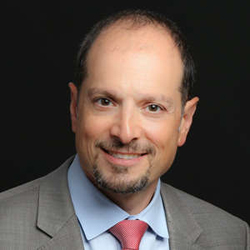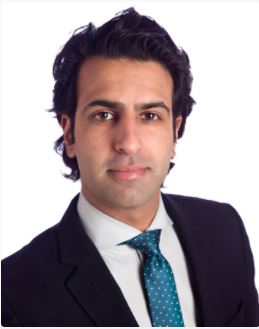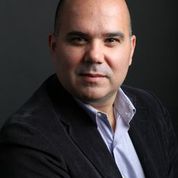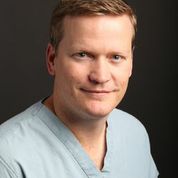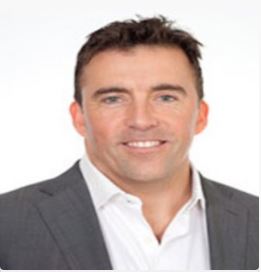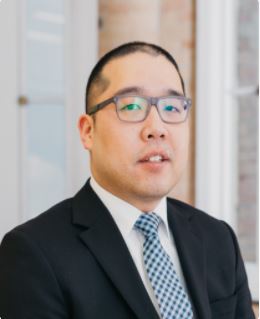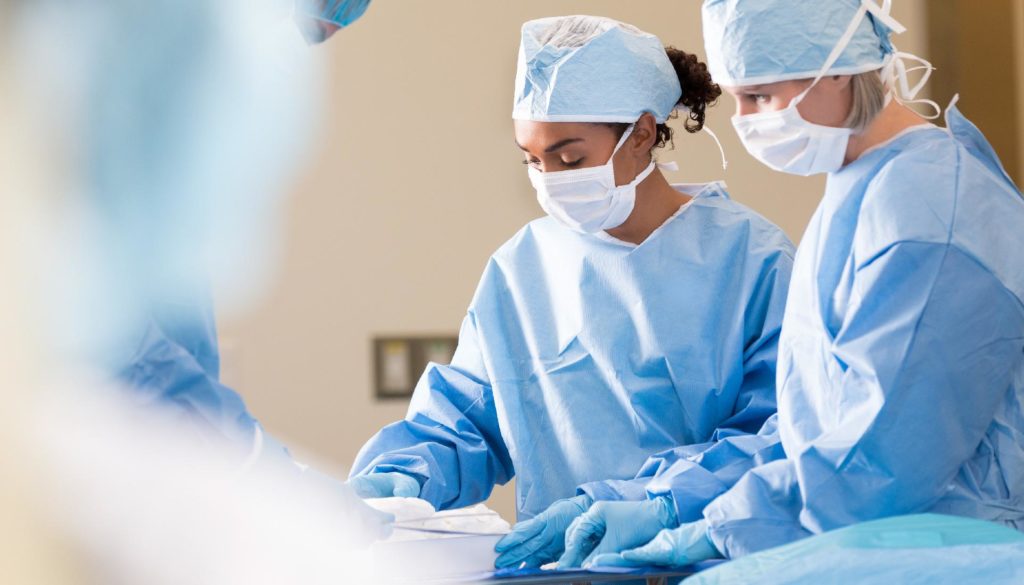
The overarching vision of the Department of Surgery at Women’s College Hospital is to provide innovative, person-centered care, that respects the diverse needs of our community, and focuses on caring for people in their homes rather than in hospitals. We strive to be a Canadian model for how to provide top-quality surgical care and support a sustainable health system for future generations.
The Department of Surgery at Women’s College Hospital provides a variety of services to patients with many different conditions. We focus on innovation and ambulatory surgery, and are able to treat many patients on a day-surgery basis.
In General Surgery, our surgeons specialize in common procedures such as gall bladder and hernia surgery, anorectal conditions such as hemorrhoids and anal fissures and breast surgery for benign conditions as well as breast cancer.
In Orthopedic Surgery, our surgeons specialize in sports medicine, including soft tissue trauma and sports injuries, as well as complex knee, complex shoulder, foot and ankle, cartilage and joint restoration, revision procedures and hip. We also have a unique day-surgery total joint replacement program, where we provide knee and hip joint replacements without a hospital stay.
In Urologic Surgery, our surgeons focus on male fertility procedures, as well as male and female sexual medicine and surgery. We also specialize in feminizing transition-related genital surgery (vaginoplasty).
In Endocrine Surgery, our surgeons have developed innovative programs in same-day surgery of the thyroid and parathyroid glands, as well as removal of adrenal glands.
In Plastic and Reconstructive Surgery, our surgeons specialize in breast reconstruction after breast cancer surgery, as well as other operations on the breast, including transition-related masculinizing and feminizing chest surgery.
Surgery and Surgical Clinics
Women’s College Hospital
76 Grenville Street
Floor 3, 4, 5 and 8
Toronto, ON M5S 1B2
Women’s College Hospital
76 Grenville Street
Floor 5
Toronto, ON M5S 1B2
Phone: 416-323-6014
Women’s College Hospital
76 Grenville Street
Toronto, ON M5S 1B2
Phone: 416-323-6013
Fax: 416-323-6308
Women’s College Hospital
76 Grenville Street
Floor 4
Toronto, ON M5S 1B2
Women’s College Hospital
Floor 8
76 Grenville Street
Toronto, ON M5S 1B2
Phone: 416-323-6260
Fax: 416-323-6169
Hours of Service
Monday – Friday
8 a.m. to 4 p.m.
Women’s College Hospital
76 Grenville Street
Floor 5
Toronto, ON M5S 1B2
Phone: 416-323-6148
Email: transitionrelatedsurgery@wchospital.ca
Women’s College Hospital
76 Grenville Street
Floor 5
76 Grenville Street
Toronto, ON M5S 1B2
Phone: 416-323-6014
General Surgery & Toronto Anorectal Program (TARP)
General Surgery
Women’s College Hospital provides General Surgery services for conditions such as gall bladder disease, hernias, and anorectal conditions.
While all of our surgeons perform surgical procedures at Women’s College Hospital, some of our surgeons also work in the Women’s College Hospital clinics, and other surgeons have their clinics at other hospitals.
David Urbach MD, MSc, FRCSC, FACS
Professor of Surgery and Health Policy, Management & Evaluation
Director of Perioperative Services
General Surgery
David Urbach is Head of the Department of Surgery and Director of Perioperative Services at Women’s College Hospital, and Professor of Surgery and Health Policy, Management and Evaluation at The University of Toronto. His clinical practice focuses on minimally invasive surgery, particularly gastrointestinal, hernia, adrenal and obesity surgery. He is a Senior Fellow at the Women’s College Hospital Institute for Health System Solutions and Virtual Care (WIHV), and Senior Scientist at the Institute for Clinical Evaluative Sciences (ICES). His research program focuses on surgery-related health services research, including measurement of the quality and outcomes of surgical care, and methods for the evaluation of surgery and other health technologies.
Office: Administrative – 416-323-7712 Clinical: 416-323-7309
Karen Devon MD, MSc, FRCSC, FACS
Assistant Professor and Medical Director of the Endocrine Surgery Program
Endocrine and General Surgery
Since joining Women’s College Hospital in 2012 Karen continues to be actively involved in various leadership roles including Undergraduate Medical Education Coordinator for Surgery at WCH, Co-Director of the MHSc Bioethics course, and the promotion of humanism and professionalism in surgery. She led the interdisciplinary team that received the 2016 WCH Excellence in Collaborative Innovation Award for the development of the Outpatient Thyroid Surgery Program at WCH. She leads the Department of Surgery Ethics Group, and facilitates the Postgraduate Medical Education (PGME) Surgeon in Society Program. Recognized internationally for excellence in patient care, innovation, research and education
Office: 416-323-6400 ext 7352
Dr. David Lim MDCM MEd PhD FRCSC
Clinical Associate Surgeon
Postdoctoral Fellow, Women’s College Research Institute
Breast Oncology Surgery and General Surgery
Dr. David Lim is a Breast Surgical Oncologist and General Surgeon and Women’s College Hospital’s Interim Division Head for the Henrietta Banting Breast Centre. He is currently a Postgraduate Fellow within the Canadian Institute of Health Research at the Women’s College Research Institute collaborating on breast cancer research.
- Dr. Jesse Pasternak
- Dr. Ted Ross
- Dr. Jaime Escallon
- Dr. Michael Reedijk
The Toronto Anorectal Program (TARP) is a collaborative benign anorectal surgery clinic that brings together the practice of four University of Toronto faculty colon and rectal surgeons. The Clinic operates as a centralized model, meaning that when a patient is referred to the clinic and appropriate for care, they will be seen for an initial consultation by the next available surgeon.
Following the consult, patients who are suitable for surgery will be scheduled with the next available surgeon to complete the procedure. This means that a patient may have a different surgeon for their consult and subsequent surgery.
The centralized model helps low complexity patients experiencing some anorectal conditions receive surgical care as fast as possible.
The clinic provides care for various benign perianal diseases, including hemorrhoids, anal fistulas, anal fissures and anal polyps.
The Toronto Anorectal Program (TARP) team consists of:
- Dr. Marisa Louridas
- Dr. Mantaj Brar
- Dr Anthony DeBuck
- Dr. Ted Ross
Endocrine Surgery
The University of Toronto Department of Surgery has a long history of excellence and innovation in endocrine surgery including the first outpatient program in Toronto.
In our program you will receive comprehensive and compassionate evaluation, treatment and management of diseases of the thyroid, parathyroid glands, and adrenal glands. All of our surgeons are also dedicated to advancement in the field through academic research and in training the next generation of surgeons.
Karen Devon MD, MSc, FRCSC, FACS
Assistant Professor and Medical Director of the Endocrine Surgery Program
Dr. Devon completed her general surgery training in Toronto and has a fellowship in endocrine surgery and in clinical ethics from the University of Chicago. She is an assistant professor in the Department of Surgery at the University of Toronto. She has expertise in the treatment of all thyroid diseases including thyroid cancer. She has won awards for her innovation in creating our outpatient thyroidectomy and parathyroidectomy programs where she has introduced innovative technologies to allow for a focused, minimally invasive approach.
Orthopedic Sports Medicine Clinic
The orthopedic sports medicine program at Women’s College Hospital is the largest in Toronto, and one of the largest in Canada. As the epicenter of the University of Toronto Orthopaedic Sports Medicine (UTOSM), the surgeons at WCH provide expert care for patients, weekend warriors and elite athletes with injuries to their knees, shoulders, hips and ankles.
Dr. Jas Chahal
Dr. Jas Chahal is Interim Head, Division of Orthopedic Surgery at Women’s College Hospital and Assistant Professor in the Department of Surgery at the University of Toronto. Areas of specialty include shoulder, hip and knee arthroscopy, ligament reconstruction and cartilage restoration. His research interests include clinical outcomes research in sports medicine and translational work on the use of biologics and mesenchymal stem cells in treating orthopedic conditions.
Contact: 416-323-6318
Fax: 416-323-6314
Dr. John Theodoropoulos
Dr. John Theodoropoulos is Assistant Professor at the University of Toronto, Department of Surgery. His area of specialty and research include Sports Medicine & Arthroscopy. He has received various teaching awards from the Department from Surgery at McGill University and many invitations to speak and present at continuing education seminars. As a distinguished and invited speaker, presenter and lecturer, he has contributed locally, provincially and nationally at meetings and conferences on topics such as ACL reconstruction, cartilage repair and tissue engineering and arthroscopic shoulder repair.
Contact: 416-586-4800 ext. 8699
Fax: 416-586-8501
Dr. Tim Dwyer
Dr. Tim Dwyer is Assistant Professor in the Department of Surgery at the University of Toronto. His Surgical practice encompasses open and arthroscopic surgery of the knee, shoulder and hip. His knee surgery focus is on primary (hamstring and BPTB) and revision ACL reconstruction, the management of cartilage and meniscal lesions, as well as disorders of the patellofemoral joint. His shoulder practice deals with all complex shoulder pathology, including shoulder instability and rotator cuff pathology. He performs hip arthroscopy for labral tears and CAM impingement. Primary research focus is on the assessment of surgical competence in Competency Based Medical Education. Other research interests are clinical outcomes following knee and shoulder surgery, including arthroscopicrotator cuff repair, the treatment of massive rotator cuff tears, and ACL reconstruction.
Contact: 416-323-6482
Fax: 416-323-6483
Dr. Danny Whelan
Dr. Danny Whelan is Associate Professor at the University of Toronto, Department of Surgery. Dr. Whelan is involved in several multicenter clinical trials in orthopedic sports medicine with an ongoing investigation on ACL reconstruction with hamstring tendon grafts. Other research interests include joint instability, particularly of the knee and shoulder, hip pain in the young adult and randomized trials in surgery.
Contact: 416-864-6002
Fax: 416-359-1601
Dr. Sam Park
Dr. Sam Park is Assistant Professor and Surgeon-Investigator in the Department of Surgery at the University of Toronto. His specialized clinical focus is in the management of adult foot and ankle conditions. These include the early to end-stage arthritis, deformity correction, cartilage lesions, tendon disorders, athletic injuries, factures and trauma, and the foot and ankle sequelae from systemic conditions and neurological disorders. Academic interests include clinical epidemiology and outcomes research on the treatment of various foot and ankle disorders and pathology; and translational science research related to foot and ankle arthritis and joint preservation.
Contact: 416-323-6362
Fax: 416-323-6375
At WCH, UTOSM is focused on clinical trials and qualitative studies involving the knee, hip and shoulder, as well as education research. UTOSM is currently running randomized trials focused on ACL reconstruction, massive rotator cuff tears, hip arthroscopy, as well as the use of Bone Marrow Aspirate Concentrate (BMAC) for the treatment of shoulder osteoarthritis. UTOSM is also conducting a series of studies with regards to cartilage implantation, revision ACL reconstruction, the competency of sports medicine fellows, as well as aspects of surgical training.
At WCH, UTOSM runs one of Canada’s largest training programs for orthopaedic surgeons wishing to train in sports medicine and arthroscopy. Up to eight surgeons from Canada and across the world are undertaking fellowship training each year at WCH, allowing them to develop skills that will benefit thousands of patients. UTOSM is also the center for orthopaedic resident training in sports medicine at the University of Toronto.
Total Joint Replacement Program
The outpatient total joint replacement program at Women’s College Hospital is a unique collaborative aiming to deliver effective, efficient, and patient-centered care for individuals with hip and knee arthritis. Ideal surgical candidates are motivated patients with well-controlled medical co-morbidities and strong social supports. Patients must live in the Greater Toronto Area to be eligible for same-day discharge.
This innovative program includes pioneering perioperative anaesthesia care and the use of interactive home patient monitoring.
Each surgeon holds a faculty appointment within the Division of Orthopaedics at the University of Toronto
Surgery Team
Dr. David Backstein – Mount Sinai Hospital
Area of Expertise: Total knee replacement, partial knee replacement
Office Phone Number: 416-586-8457
Dr. Paul Kuzyk – Mount Sinai Hospital
Area of Expertise: Minimally invasive total hip replacement, total knee replacement
Office Phone Number: 416-586-4653
Dr. Oleg Safir – Mount Sinai Hospital
Area of Expertise: Minimally invasive total hip replacement
Office Phone Number: 416-586-4653
Dr. Jesse Wolfstadt – Mount Sinai Hospital
Area of Expertise: Total knee replacement, partial knee replacement
Office Phone Number: 416-586-4800 ext. 2835
Dr. Michael Zywiel – Toronto Western Hospital
Area of Expertise: Total knee replacement, partial knee replacement, direct anterior (DAA) total hip replacement
Office Phone Number: 416-603-5359
Urology Clinic
Physician referrals are required for all WCH surgical clinics and programs
Orthopedic Sports Medicine Clinic
Download and complete the patient referral form from the University of Toronto Orthopaedic Sports Medicine (UTOSM) appointments page.
Toronto Anorectal Program (TARP)
Please fax your referral to the Toronto Anorectal Program (TARP) at Women’s College Hospital at 416-323-6172
Ocean eReferral Network: For more information about eReferral can be found here.
Total Joint Replacement Program
Transition Related Surgical Program
OHIP funded Transition Related Surgery (TRS) is applied for by qualified health care professionals. This includes providers who are trained in the assessment, diagnosis, and treatment of gender dysphoria in accordance with the World Professional Association for Transgender Health (WPATH) Standards of Care. This may include a Physician or Nurse Practitioner (NP) as well as a Registered Nurse, Psychologist or Registered Social Worker with a Master’s degree. If you are one of the aforementioned professionals interested in becoming a qualified provider, please see our Community Resource page for more information.
To make a referral please submit
- Transition Related Surgery Referral Form
- Prior Approval Funding Confirmation Letter - Prior Approval for Funding of Sex-Reassignment Surgery Form (.pdf). (unless previously discussed with TRS Program NP)
- Comprehensive referral template (.docx) or brief referral with TRS planning visit notes
Before making your referral ensure
The patient meets OHIP eligibility for surgery (unless contraindicated)
You have provided the patient with comprehensive TRS planning visit(s)
Once you receive the OHIP approval form, have completed the referral and have attached a completed cover page, please fax the referral to: 416 323-6310. If you have any questions about the referral or referral process please call: 416 323-6400 x 4339 or x5333.
Once the referral is received, it will be assessed by someone from the TRS team. If incomplete, it will be returned by fax requesting the missing information.
If the referral is complete, it will then be sent to the appropriate surgeon’s secretary and they will be in contact once they have an appointment available.
For OHIP Funding
The TRS Frequently Asked Questions (.pdf) is a guide to the assessment and referral process for Ministry of Health and Long-Term Care Approval for OHIP funding. The resource is intended for persons considering transition-related surgery in Ontario, and the people supporting them.
The Ministry of Health and Long-Term Care’s website outlines the Ontario Health Insurance Plan (OHIP) funding criteria for transition- related surgeries. There is a specific form, the Request for Prior Approval for Funding of Sex-Reassignment Surgery Form (.pdf), you must complete in the current referral system to gain access to OHIP coverage. This form can be found here.
The form is completed and faxed to the MOHLTC at (613)536-3188 once
- The patient is confirmed to meet the criteria for surgery
- TRS planning visits have been completed and the patient wishes to move forward with surgery
- A surgeon has been chosen (see Our Team)
Once the form is faxed to the MOHLTC, they will fax back a letter with the decision (typically within 1-4 weeks). This Prior Approval Funding Confirmation Letter will be sent to the patient and the referring provider. The form will not be sent to the surgical team as of November 1st, 2019.
Criteria for Surgery
Criteria for surgery must be met prior to referral to a surgeon/program. The criteria for surgery are outlined in the box below. Please ensure your client has met these criteria, unless contraindicated, and please make comments on your referral letter. Criteria for all surgeries, including what is listed in the table, must include persistent and well documented gender dysphoria, capacity to make a fully informed decision and consent to treatment.
The TRS Frequently Asked Questions (.pdf) is a guide to the assessment and referral process for Ministry of Health and Long-Term Care Approval for OHIP funding. The resource is intended for persons considering transition-related surgery in Ontario, and the people supporting them.
The Ministry of Health and Long-Term Care’s website outlines the Ontario Health Insurance Plan (OHIP) funding criteria for transition- related surgeries. There is a specific form, the Request for Prior Approval for Funding of Sex-Reassignment Surgery Form (.pdf), you must complete in the current referral system to gain access to OHIP coverage. This form can be found here.
The form is completed and faxed to the MOHLTC at (613)536-3188 once
- The patient is confirmed to meet the criteria for surgery
- TRS planning visits have been completed and the patient wishes to move forward with surgery
- A surgeon has been chosen (see Our Team)
Once the form is faxed to the MOHLTC, they will fax back a letter with the decision (typically within 1-4 weeks). This Prior Approval Funding Confirmation Letter will be sent to the patient and the referring provider. The form will not be sent to the surgical team as of November 1st, 2019.
For upper body surgeries including mastectomy with chest contouring and augmentation mammoplasty, only one provider (physician or nurse practitioner) is required to complete surgery planning visit(s) and complete the Request for Prior Approval for Funding of Sex-Reassignment Surgery Form (.pdf).
For lower body surgeries, including but not limited to orchiectomy, hysterectomy, phalloplasty, metoidioplasty and vaginoplasty, two providers are required to complete separate surgery planning visits and complete the Request for Prior Approval for Funding of Sex-Reassignment Surgery Form (.pdf). One of the providers must be a physician or Nurse Practitioner and the other may be any of the listed qualified providers.
TRS planning visits are to be completed as you wish, however, to assist you we have created a list of key topics to discuss and include during these appointments. Documentation should confirm that these topics have been reviewed.
Discuss the patients current gender identity and process of transition
Confirm persistent Gender Dysphoria, the patients experience with transition so far, medical and social steps taken or considered
Include Eligibility as per the Ministry of Health and Long Term Care and the World Professional Association of Transgender Health (i.e. duration of hormones, gender role experience)
Goals for surgery
Why does the patient want surgery? How will surgery help the patient achieve their gender goals/reduce dysphoria?
Are their expectations for surgery realistic?
Aware of alternative non-surgical and surgical options
If relevant, discussion around fertility and options for preservation reviewed
Detailed surgery discussion/capacity for informed consent
Description of desired surgery, realistic outcomes, risks, side effects (irreversibility), alternate options. (A more detailed and focused discussion about surgical details will take place between the surgeon and client)
Readiness (medical and psychosocial)
How well controlled are medical and mental health conditions
Smoking, alcohol, substance use
Supports in place (including financial), and aftercare planning
Criteria for TRS Surgery
Criteria for surgery must be met prior to referral to a surgeon/program. The criteria for surgery are outlined in the box below. Please ensure your client has met these criteria, unless contraindicated, and please make comments on your referral letter. Criteria for all surgeries, including what is listed in the table, must include persistent and well documented gender dysphoria, capacity to make a fully informed decision and consent to treatment.
| Surgery | 1st Letter (MD/NP) | 2nd Letter (NP/MD/ RN/MSW/ Psychologist) | Hormones | Medical and Mental Health Coniditons | Gender Role Experience |
|---|---|---|---|---|---|
| Mastectomy | x | Not a pre-requisite | “controlled” | ||
| Augmentation Mammoplasty | x | 12 continuous months with no breast development | “controlled” | ||
| Gonad: Hysterotomy or Orchiectomy | x | x | 12 continuous months | “well controlled” | |
| Vaginoplasty | x | x | 12 continuous months | “well controlled” | 12 continuous months of living in a gender role congruent with gender identity |
| Phalloplasty/Medtoidioplasty | x | x | 12 continuous months | “well controlled” | 12 continuous months of living in a gender role congruent with gender identity |
- Unless instructed otherwise, patients should not eat after midnight the day before their surgery. You may continue to drink clear fluids until four hours prior to surgery time. After that, medications can be taken as instructed with sips of water.
- Patients must have a responsible adult take them home when discharged from hospital.
- When arriving for surgery, please bring comfortable clothes to wear home, cotton socks to wear in surgery, your health card, an interpreter if required, pen and paper, and dentures, glasses, contact lenses, and hearing aids if necessary.
- Please do not wear any jewelry, fragrances or cosmetics, including body piercings, perfumes, body lotions / creams, makeup or nail polish.
- Leave all valuables including large amounts of money, credit cards and jewelry at home. The hospital is not responsible for lost or stolen items.
Please report to the Surgery reception desk on the 8th floor when you arrive for surgery. You must arrive in Surgical Daycare 2 hours prior to your surgery time unless instructed otherwise.
If you have any questions or concerns, please contact a preadmission nurse at 416-323-6400 ext. 4594 from 8 a.m. to 2 p.m., Monday to Friday.
After 2 p.m. a nurse can be reached at 416-323-6104.
Shape
This information and more may be downloaded as a printable pamphlet: Ambulatory Surgery Brochure (.pdf)
Surgical Experience
Scheduled for a surgery at WCH? Our team put together the following videos to provide you with an inside look at what to expect from your surgery experience.
Preoperative Experience
Surgery Day Experience
Postoperative Experience
Frequently Asked Questions
What does an anesthesiologist do?
Anesthesiologists are probably best known for putting you to sleep before surgery (known as general anesthesia). These medical doctors specialize in using medication to provide relief for postoperative (temporary) pain. Your anesthesiologist is also responsible for your welfare and comfort during and after surgery. In addition, some anesthesiologists are involved in the treatment of chronic pain (recurring) problems.
What is the difference between analgesia and anesthesia?
Analgesia is a general term for pain relief of any kind. Anesthesia may involve analgesia through loss of physical sensation (called regional anesthesia) in a part of the body. For some surgeries, it includes loss of consciousness as well as analgesia (called general anesthesia).
When would I see an anesthesiologist?
You will see an anesthesiologist when you have surgery that requires anesthesia or sedation. Usually, you will meet your anesthesiologist just before you go into the operating room, although your surgeon may request a consult with an anesthesiologist at your Preadmission Clinic appointment. If you require relief from chronic pain, your doctor might refer you to our Chronic Pain Management Clinic.
What does my anesthesiologist need to know?
Your anesthesiologist will need to know if you have certain medical conditions (for example: drug allergies, diabetes, malignant hyperthermia, porphyria). This may be discussed with an anesthesiologist at your pre-admission clinic appointment.
Do you treat chronic pain?
We offer diagnosis and treatment services to patients who require relief from chronic pain (persistent or recurring) due to a wide variety of medical conditions. You will need a referral from your doctor. For more information, please see the Chronic Pain Management Clinic section.
What type of anesthesia will be used for my surgery?
The type of anesthesia depends on the type of surgery or procedure being done. General anesthesia (being asleep) is often used for major surgery, for example. However, certain types of surgery might use regional or local anesthesia instead, which numbs the part of the body being operated on while you remain awake. Sedation (relaxing medication) might also be used for short procedures, depending on the nature of the surgery.
How should I prepare for surgery?
Extensive information about how to prepare for surgery may be found on the Preadmission Clinic, Preparing for Day Surgery and Pamphlets and Links sections.
What is Patient Controlled Analgesia (PCA)?
PCA involves a device that lets the patient adjust their comfort after major surgery. When the patient presses a button, a computerized pump delivers a pre-measured dose of pain medication through an intravenous (IV) line.
What does the anesthesiologist do?
Before surgery: You will be required to attend an appointment at the Preadmission Clinic within two weeks prior to your surgery. You or your surgeon may request a consultation assessment with an anesthesiologist to discuss any concerns that you might have. If you have any special medical conditions (for example: drug allergies, diabetes, high blood pressure, malignant hyperthermia, porphyria) you will need to discuss this at the preadmission visit. If you don’t need to see an anesthesiologist at your preadmission appointment, you will meet him or her on the morning of your surgery, usually just prior to going into the operating room.
During surgery: Your anesthesiologist is responsible for your safety and comfort during the operation. He or she administers the anesthetic, provides any necessary medication and operates the equipment that keeps your vital signs functioning throughout the operation.
After surgery: The anesthesiologist supervises your post-operative recovery and monitors your functioning as you wake up. Your anesthesiologist ensures you are comfortable and pain free, and orders any pain medication as needed.
More Information
The following information is provided to help you understand what an anesthesiologist does and how to work most effectively with him or her as it relates to your surgery:
Patients may be required to visit the preadmission clinic in advance of their surgery to register and to discuss with a nurse what will happen the day of surgery and what to expect when discharged home.
During the appointment, patients will have preoperative tests such as x-rays, electrocardiograms (ECG), consultations with an anesthesiologist or other tests requested by their surgeon.
Setting up the appointment
Your doctor’s secretary will book this appointment for you. There you will be registered, and have your blood tests and an interview with a nurse to learn about your procedure and how to prepare for it. If you have any special medical conditions that could interact with anesthesia, be sure to mention this at your appointment.
Your doctor may also request a consultation with an anesthesiologist as part of your preadmission visit.
If you wish to see an anesthesiologist in advance, tell your surgeon who must book a consultation for you.
What to bring to your appointment:
- An interpreter, if you need one or would like one.
- Your completed patient questionnaire.
- Any medication you are taking.
- Your provincial health insurance card.
- Any private insurance information.
- Any other documentation your doctor has given you (history and physical; letters from your specialists).
- A book to read; money for coffee or lunch.
- Any questions you might have.
Some of the links on these pages go to external websites that may include information about health-care insurance or credentials that are not applicable to Canadians.
Preparing for Surgery
Women’s College Hospital pamphlets:
Ambulatory Surgery Brochure (.pdf)
Special Considerations
Anesthesia Awareness – Information and Registry
Organizations
Resources
Transition Related Surgical Program
If you wish to access Ontario Health Insurance Plan (OHIP) funded TRS, please make an appointment with your physician or nurse practitioner. TRS planning visits can occur in a primary care setting, with a specialist or at the CAMH Gender Identity Clinic (or in combination depending on your needs and local resources). TRS planning visits will take place with your health care team. You may be asked to see one or two providers depending on the surgery you are requesting. In addition to a physician or nurse practitioner, this might include a social worker, a registered nurse or a psychologist
Your health care provider will arrange or provide the necessary surgery planning visits prior to referral for surgery. In these appointments the provider will ensure that you have met all the OHIP funded surgery criteria in addition to having an in depth conversation with you about your goals, different surgical and non-surgical options, risks and benefits of surgery and other relevant medical and mental health issues.
Once you have completed your TRS planning visit(s), your health care providers will complete a special medical form seeking OHIP funding for transition- related surgeries. Once this is approved, a referral will be made to your chosen surgeon. If the referral is complete and accepted, you will receive a call to set up an initial appointment with the surgeon. The TRS Frequently Asked Questions (.pdf) is a guide to the assessment and referral process for Ministry of Health and Long-Term Care Approval for OHIP funding. The resource is intended for persons considering transition-related surgery in Ontario, and the people supporting them.
The first appointment is a surgical consultation. At this visit you will meet with your surgeon and possibly the Nurse Practitioner or Social Worker. During this visit, we will take a comprehensive history, there will be a detailed discussion about surgery, a physical exam will take place, photos may or may not be taken and consent to communicate with your primary care team will be sought. A pre-op medical questionnaire will be completed.
After this consult visit, if surgery is the next step, the surgeons secretary will follow up with you in order to book surgery. Once surgery is booked, you will get another appointment for pre-admission clinic. This visit typically occurs in the week or two before surgery.
At the pre-admission visit you will be given more details about your surgery, pre-operative instructions, review an after-care plan and you may be given information to take home. You may also meet with anesthesia and possibly pharmacy or internal medicine at this visit.
You are expected to have someone to pick you up from surgery and stay with you for 24 hours afterwards. If you do not have such a person, we will discuss options available to you including the ARC program at SHC.
WCH Patient Resources*
*These resources are intended to support patients of Women’s College Hospital.
For information on vaginoplasty surgery, recovery and support please visit the vaginoplasty resources page.
Community Resources
If you would like more information on how to become a provider qualified to make referrals for Trans Related Surgery please see the RHO website for trainings and information
For information on the referral process for surgery in Ontario see Rainbow Health Ontario’s Frequently Asked Questions.
For information about specific transition related surgeries, please see these surgical info summary sheets.
RHO provides a weekly mentorship call from Wednesday from 12-1. Providers are encouraged to call in to ask any trans related health care questions. Register at the bottom of the page on their website.
If you are looking for a primary or secondary provider to support trans pre-surgical planning visits you can make a referral to CAMH.
Visit the RHO Newsroom to be kept up-to-date as our program and website expands to include helpful resources and ensure access to care.
